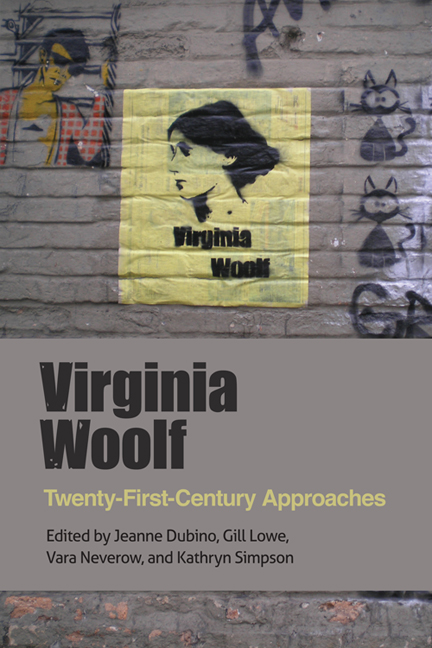Book contents
- Frontmatter
- Contents
- Acknowledgements
- Contributors
- Abbreviations
- Introduction
- PART ONE Self and Identity
- PART TWO Language and Translation
- PART THREE Culture and Commodification
- 5 ‘Unity – Dispersity’: Virginia Woolf and the Contradictory Motif of the Motor-car
- 6 ‘Am I a Jew?’: Woolf's 1930s Political and Economic Peregrinations
- PART FOUR Human, Animal, and Nonhuman
- PART FIVE Genders, Sexualities, and Multiplicities
- Index
6 - ‘Am I a Jew?’: Woolf's 1930s Political and Economic Peregrinations
from PART THREE - Culture and Commodification
Published online by Cambridge University Press: 05 August 2016
- Frontmatter
- Contents
- Acknowledgements
- Contributors
- Abbreviations
- Introduction
- PART ONE Self and Identity
- PART TWO Language and Translation
- PART THREE Culture and Commodification
- 5 ‘Unity – Dispersity’: Virginia Woolf and the Contradictory Motif of the Motor-car
- 6 ‘Am I a Jew?’: Woolf's 1930s Political and Economic Peregrinations
- PART FOUR Human, Animal, and Nonhuman
- PART FIVE Genders, Sexualities, and Multiplicities
- Index
Summary
Woolf's troubling and contradictory attitude to Jewishness has long been seen as a source of perplexity and frustration for her readers and critics. At times she expresses her sense of identification as a Jew, aligning herself specifically with Leonard and with a more general sense of being an outsider. Yet her personal and public writing is riddled with instances of antisemitism, including pointed attacks on Leonard and his family, which are shocking in their vehemence.
The coexistence of these contradictory perceptions of her Jewish relatives and Jewishness more generally can be seen as symptomatic of a wider cultural confusion about the figure of the Jew in this historical period. Simultaneously perceived as an ancient race, outcast and alien in the modern Christian world, ‘Jews were often viewed as moderns par excellence, … cosmopolitan, rootless, urban’ (Linett 2007: 80). The significant influx of East European Jewish immigrants during the latter part of the nineteenth century and the pre-war period heightened cultural tensions within established Jewish communities in London and in the wider society, adding further complexity to issues of identity and belonging and giving rise to the perceived sense of the ‘problem’ of the Jew in British society. That ‘the conceptual Jew’ is a ‘semantically overloaded entity’, ‘blending meanings which ought to be kept apart’, as Zygmunt Bauman explains (2000: 39), seems key to understanding the Jew as a figure of contradiction and boundary-troubling complexity in Woolf's political thinking and writing.
Woolf's antisemitism was also closely bound up with class prejudice, as Michael Whitworth suggests: ‘[i]f social classifications motivated her distaste, class and not race was the important factor’ (2005: 72). But Woolf was also critically self-aware of her ‘snobbery’ (particularly in her response to Leonard's family) and of the ways in which her own class privilege and racial prejudice sometimes created a myopic view and dangerous blind spots. Hermione Lee argues that ‘Woolf separates herself off from the habitual, half-conscious anti-Semitism of her circle’ but that she also ‘spells out her complicity in bigotry and offensiveness by way of self-accusation and social critique’ (1996: 680).
- Type
- Chapter
- Information
- Virginia WoolfTwenty-First-Century Approaches, pp. 111 - 128Publisher: Edinburgh University PressPrint publication year: 2014



